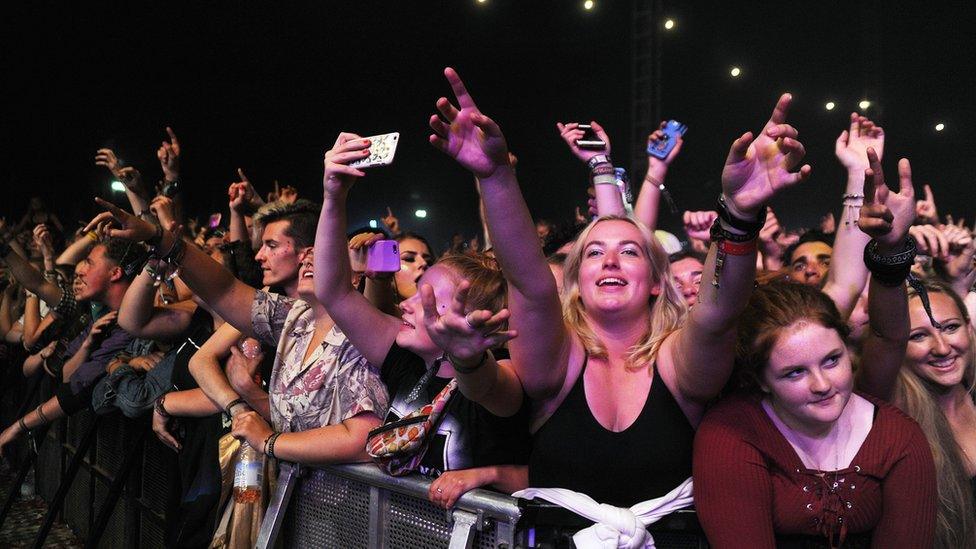Festivals could be 'as safe as Sainsbury's'
- Published
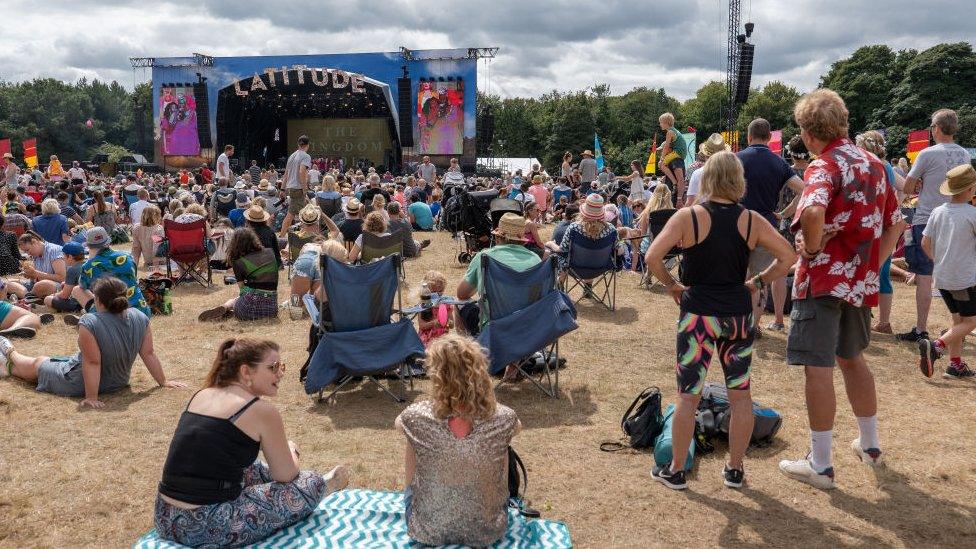
Festival organisers have been calling on the government to set up an insurance scheme
Festivals have the potential to be "as safe as Sainsbury's", despite the impact of the Covid-19 pandemic, MPs have been told.
Rowan Cannon, director of festival organisers Wild Rumpus, said that while large events like Glastonbury have been cancelled, smaller-scale shows could go ahead with the right measures in place.
"The idea that the festivals can't go ahead and be socially-distanced is inaccurate," she told the House of Commons Culture Select Committee, which is examining the live music sector.
Cannon urged MPs to consider the diversity of the UK's festival scene, which includes everything from boutique, location-specific events to "80,000 20-year-olds in a field".
She noted that the two festivals she organises - Just So in Cheshire and Timber in South Derbyshire - could easily protect their audiences amid the pandemic.
"They're both a capacity of around 5,000. They both have vast sites of about 100 acres," she explained.
"We can absolutely adapt our programming, put infrastructure in place, [and] change the way that we do things, to enable something to happen with social distancing in place."
By contrast, the organiser of the Notting Hill Carnival said this year's event could not take place if social distancing remained in place.
"It would be very difficult to hold Carnival in its traditional format on the streets with social distancing in place," said Matthew Phillip.
"It would be devastating for a second year in a row."
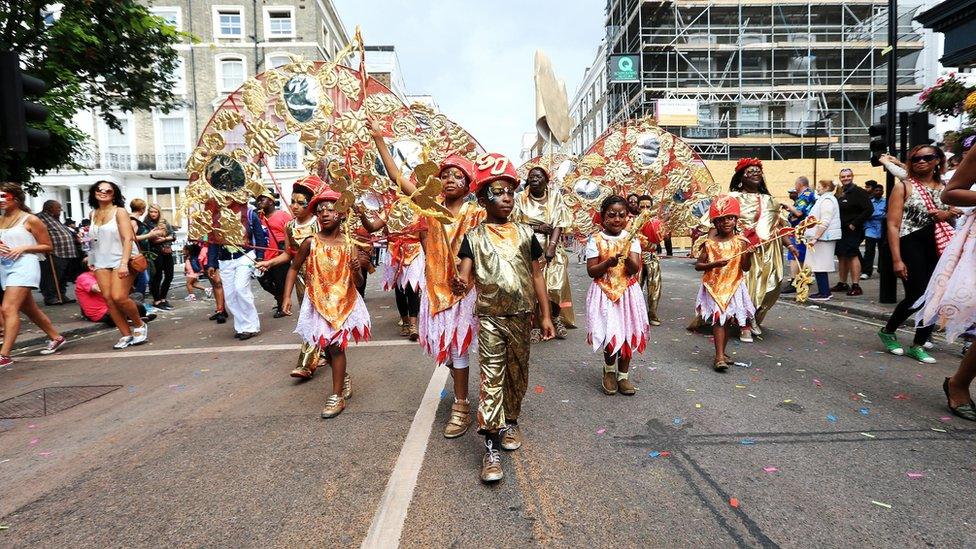
The Notting Hill Carnival traditionally takes place over the August Bank Holiday weekend
He added that Carnival would continue in some format, no matter what the situation is in August.
"Carnival means too much to too many people for us to simply ignore it so we would always try to find a way of celebrating Carnival for its artistry and what it means to the community," he said.
Philip said the event was "resilient" but called for clear guidance on how to proceed.
He observed that "there is a risk of ending up with something that is not managed" if the festival is cancelled, but smaller venues are allowed to open under a relaxation of coronavirus measures.
Up to two million people usually attend Carnival so if there are "five or six or 10 premises which have got loud music playing, it could potentially pose some risks".
'Can't carry on'
The inquiry also returned to the question of insurance, without which festivals say they could face financial ruin this summer.
MPs on the select committee have already written to the chancellor asking him to launch a scheme that would compensate live events if they are forced to cancel - similar to a £2.3bn fund recently announced in Germany.
Without it, festivals may be unable to book performers, crews and equipment, said Duncan Bell from the campaign group We Make Events.
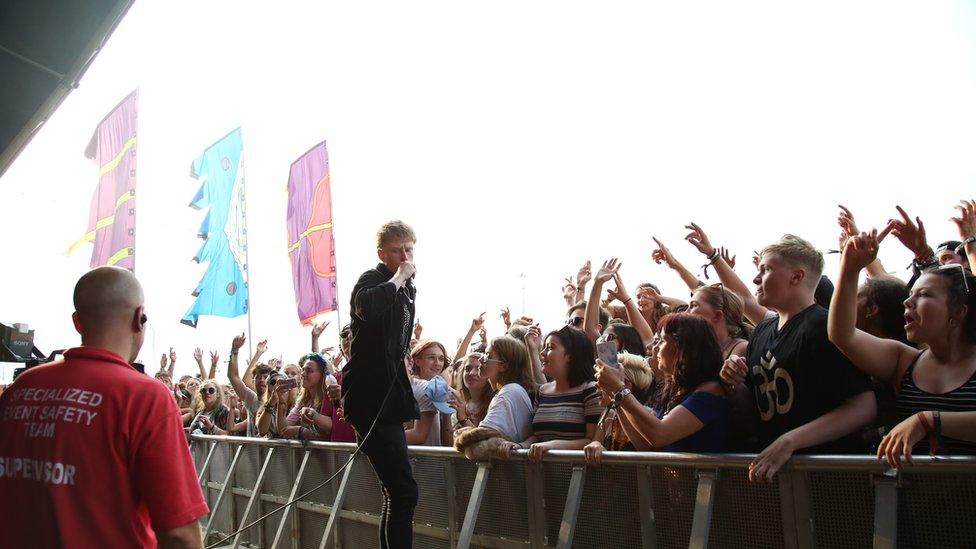
While Glastonbury has been cancelled, other festivals are still pressing ahead with their plans for 2021
He described insurance as "the first link in the chain, not the last"; and said the government needed to engage with the live music sector to draw up a roadmap for the return of concerts and festivals.
"It's not necessarily about a definitive date," he said. "It's about a plan: How do we think a safe event happens? What does the insurance scheme allow? How does rapid testing fit into that process?"
Once those parameters are set, he suggested, organisers can arrange pilot concerts "to move towards safe events".
"The industry has been resilient… but that can't carry on," he added. "And for most people, that point is absolutely imminent."
Impact of Brexit
Labour MP Alex Davies-Jones also asked about the impact of Brexit on live music, and was told young bands, in particular, could suffer from the requirement to obtain work permits and visas to play in certain European countries.
"They're probably not even breaking even in the first place," said Tre Stead, a tour manager who has worked with Take That, Laura Marling Jessie Ware and Frank Turner.
"They've probably done a job for a year to save up money to go on that tour - and now you're adding a layer of bureaucracy, a layer of admin and a load of other costs. Why would you bother?"
Scottish National Party MP John Nicholson described the situation as a "nightmare" that amounted to "music prevention".
MPs also heard that British tour bus and truck drivers were being put at a disadvantage by new limits on road haulage, which mean they only to cross two borders in the EU before they have to return to the UK.
"With the deal as it is, they can't function," said Stead, who said "most bus and truck companies" were considering moving their business out of the UK.
She said this would have a knock-on effect on UK tour crews, who would lose out to their European counterparts.
Bell was more optimistic, however, pointing out that 80% of the specialist haulage trucks that move equipment around Europe for festivals and tours are based in the UK.
"It's not actually as simple as say[ing] that the work will go to the EU. It won't, because they don't exist to the same scale," he said, suggesting that the UK's reputation in the touring industry could be used as a bargaining chip in future discussions with the EU.
Stead urged the government to return to the negotiating table and find a system "that's going to make it easier for us to travel".
"The shoot for the stars outcome," added Bell, "is an EU-wide outcome for movement of people… that works."

Follow us on Facebook, external, or on Twitter @BBCNewsEnts, external. If you have a story suggestion email entertainment.news@bbc.co.uk, external.
Related topics
- Published21 January 2021
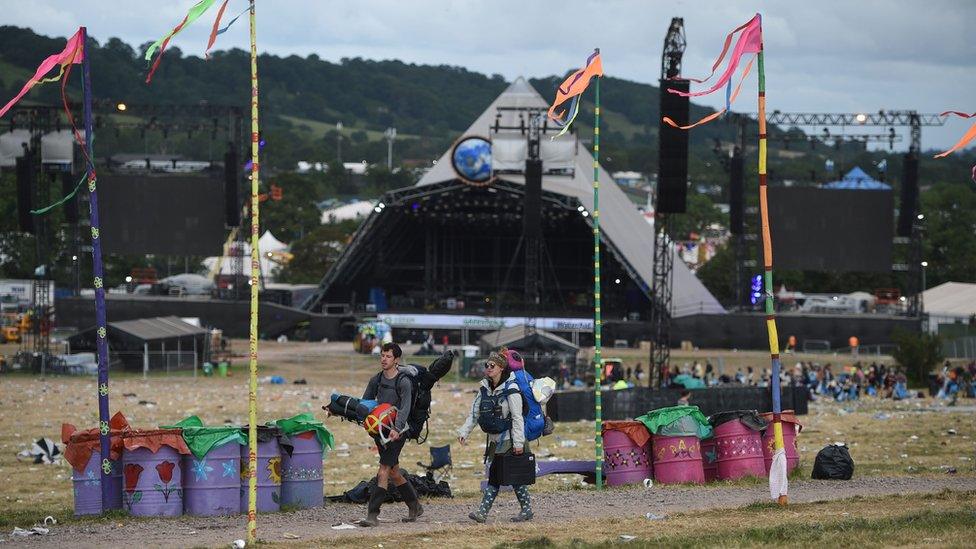
- Published7 January 2021
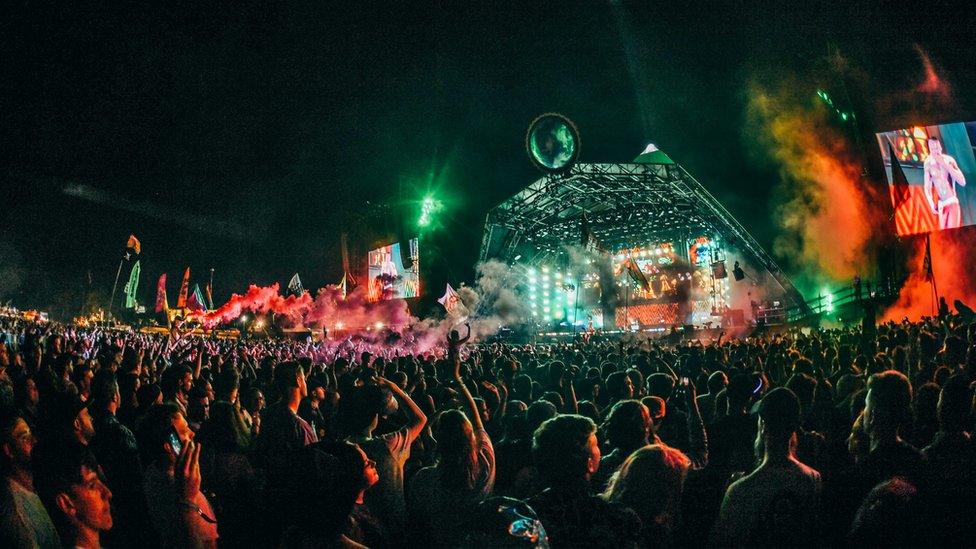
- Published5 January 2021
